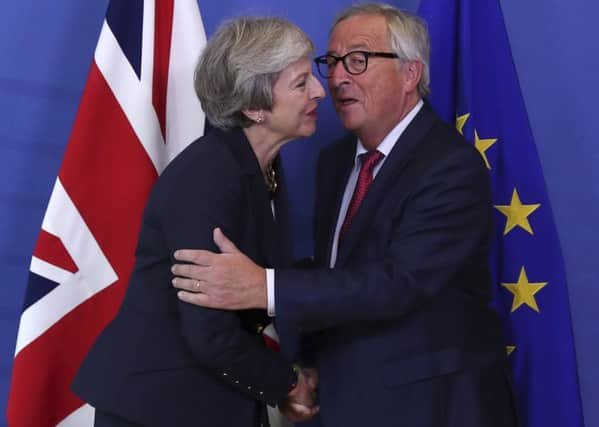Democracy in the European Union isn't what it should be '“ Eva Oer


May I suggest a disillusioning experiment for Europhiles? Ask your friends if they know anyone by the name of Alexander Stubb or Manfred Weber. I tried with German friends – and it was depressing. Stubb, a former Finnish prime minister, and Weber, a German conservative, are both vying for the most powerful position in the European Union. Both want to replace European Commission president Jean-Claude Juncker after the European elections in May 2019.
Over the next two days, the conservative EPP group, the biggest group in the European Parliament, is meeting up to elect their “spitzenkandidat“, meaning “lead candidate“. Whoever this is going to be, he has a substantial chance to climb up to Brussel’s top job next year. And nobody has even heard of the candidates?
Advertisement
Hide AdAdvertisement
Hide AdBoth Stubb and Weber are at the centre of the controversy over how democratic the EU is. Brussels has been criticised for being undemocratic and for a lack of transparency for ages, with Brexiteers like right-winger Nigel Farage even calling it “anti-democratic“.
It seems that, in particular, the European Commission often draws scorn. No wonder. While the European Parliament is elected directly every five years and the European Council is made up of the elected leaders of the member states, the way the Commission is chosen is rather opaque.
As the Lisbon treaty vaguely stipulates, member states propose a Commission president “taking into account the elections to the European Parliament“. Then the Parliament has to approve or veto the candidate. However, before the European elections in 2014, the big European parliamentary groups managed to take control of the process. They started to nominate “spitzenkandidaten“ for the post of Commission president and then declared they wouldn’t approve the EU leaders’ proposed candidate if he or she didn’t run as such a lead candidate in the European elections first.
Many members of parliament still hail this as a democratic achievement and argue for a repeat of this process for the 2019 European elections – despite opposition from leaders like French president Emmanuel Macron.
But how much of an achievement is it, when few people have heard of the lead candidates and you don’t even get a special ballot paper with their names on it? European elections have a huge flaw: they are actually not very European as citizens in the 28 (soon to be 27) countries vote separately. Two national parties might be affiliated to the same European Parliament group, such as Germany’s conservative CDU party and Ireland’s Fine Gael, but they still run under their separate party banners. A spitzenkandidat would have to run on a national list with the voter supposed to factor this in while choosing.
With Brexit looming and euroscepticism in many countries on the rise, now certainly should be a time for reform. But the European Parliament, and notably the EPP group, rejected a proposal in February which suggested some of the soon-to-be-vacated British seats should be redistributed to transnational lists after Brexit. On such a list, candidates would be competing against each other on a Europe-wide basis – and that could include the spitzenkandidaten. That would greatly improve their visibility and make European Elections just a little bit more European. Instead, it seems that none of the EU’s institutions is courageous enough to initiate a change.
Eva Oer is an editor for the German national daily Taz die Tageszeitung based in Berlin. She is spending two months at The Scotsman as part of the George Weidenfeld Bursary newsroom exchange programme
